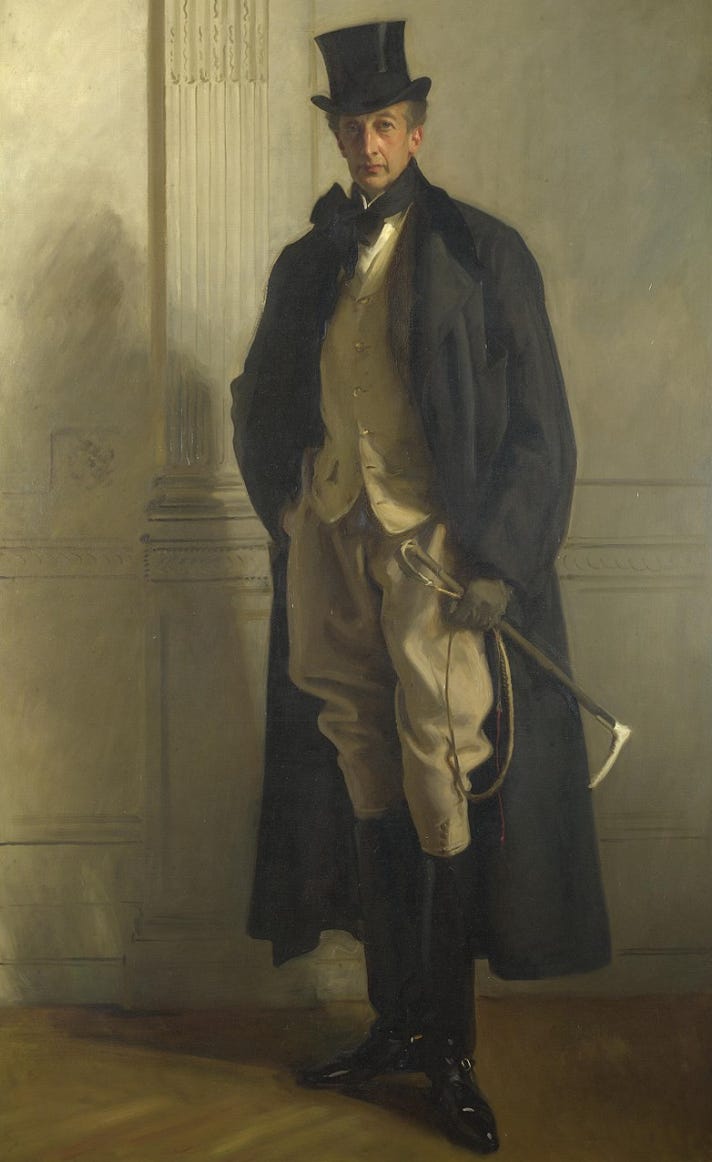"The Proud Tower" by Barbara Tuchman
One of my favorite books is Barbara Tuchman’s The Proud Tower: The World Before the War, 1890-1914, her 1966 prequel to her famous 1962 bestseller about the coming of World War I in the summer of 1914, The Guns of August (which JFK advised his staff to read during the Cuban Missile Crisis).
I enjoy The Proud Tower partly for personal nostalgia reasons: I first read it in 1980 on the airliner to Heathrow to begin my six weeks of backpacking around Europe. (But, time passes, and I just reread it for the last time: while turning the pages, the 44 year old paperback fell apart in my hands.)
In The Proud Tower, Tuchman portrays Old Europe at its glittering peak before it blew itself up, conjuring up an aura of doom-laden nostalgia. The title comes from Edgar Allan Poe’s The City In the Sea:
While from a proud tower in the town
Death looks gigantically down.
Still, while the looming of 1914 provides drive to the chapters on Tories and Liberals, Anarchists and Socialists, much of the book is enjoyable aristo-porn: being a wealthy, privileged European around 1900 was a blast.
Despite such accidents, the ruling families had no doubts of their inborn right to govern, and, on the whole, neither did the rest of the country. To be a lord, wrote a particularly picturesque exemplar, Lord Ribblesdale, in 1895, “is still a popular thing.” Known as the “Ancestor” because of his Regency appearance, Ribblesdale was so handsome a personification of the patrician that John Singer Sargent, glorifier of the class and type, asked to paint him. Standing at full length in the portrait, dressed as Master of the Queen’s Buckhounds in long riding coat, top hat, glistening boots and holding a coiled hunting whip, Sargent’s Ribblesdale stared out upon the world in an attitude of such natural arrogance, elegance and self-confidence as no man of a later day would ever achieve. When the picture was exhibited at the Salon in Paris and Ribblesdale went to see it, he was followed from room to room by admiring French crowds who, recognizing the subject of the portrait, pointed out to each other in whispers “ce grand diable de milord Anglais.”
Tuchman’s modus operandi was to read an enormous number of biographies of colorful people of the era — a few still well-remembered like Teddy Roosevelt, Churchill, Zola, and Clemenceau, but most almost forgotten today — and include the most entertaining anecdotes and quotes. Tuchman finds something to like about almost everyone she sketches, with the odd exception of composer Richard Strauss, whom she comes closed to blaming World War One upon for the slightly hysterical atmosphere of some of his operas like Salome and Elektra.
Tuchman concludes:
The proud tower built up through the great age of European civilization was an edifice of grandeur and passion, of riches and beauty and dark cellars. Its inhabitants lived, as compared to a later time, with more self-reliance, more confidence, more hope; greater magnificence, extravagance and elegance; more careless ease, more gaiety, more pleasure in each other's company and conversation, more injustice and hypocrisy, more misery and want, more sentiment including false sentiment, less sufferance of mediocrity, more dignity in work, more delight in nature, more zest. The Old World had much that has since been lost, whatever may have been gained.



In France they called it La Belle Époque, and that was an accurate label.
https://en.wikipedia.org/wiki/Belle_%C3%89poque
I've known since high school that World War One was a catastrophe for civilization. The more I've learned about history and much else since then the more I've realized how catastrophic, tragic, and horrifying it was. And it was useless.
I remember the stream of biographies, then I read The Distant Mirror, about the 14th century, which had a lot about elite males' interest in fancy clothing. In the latter, she noted that a mass cultural obsession with death began 40-50 years AFTER the Black Death, not immediately. I've long wondered if our Western cultural collapse and lack of confidence had a similar delay after the trauma of the World Wars.